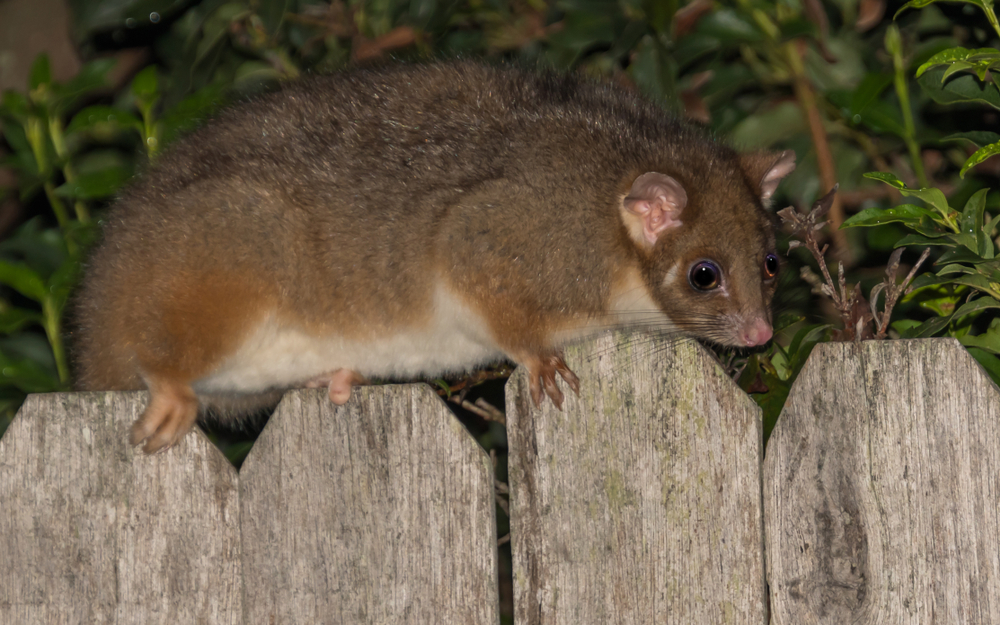Are you woken in the night by the sound of scurrying claws along your fence? Does your dog start barking at the slightest indication there might be a tiny marsupial strolling through the yard? Are your hard-grown fruits and vegetables falling victim to visitors in the night? It sounds like you might be sharing your space with possums.
Common visitors to yards and gardens across Australia, possums are a protected species. This means you’ll have to stick to more gentle methods to move them along. To get you started, here’s our guide on how to stop possums walking on your fence.
Floppy wire fence
Possums look for even, steady walkways, which is why our sturdy fences are so appealing. An easy way to combat this is by adding a wire overhang to your existing fence.
Often referred to as a “floppy wire fence”, it’s essentially a large piece of wire mesh which hangs over the top of the fence and blocks the parts possums choose to walk on. The overhang can be created used the natural bend of the wire or using a frame and loosely attaching it to the wire. The springy quality of the mesh and the fact that it covers the part of the fence suitable for walking on make it pretty unappealing for any wandering possums.
Spikes
Spikes might look scary, but they’re purely preventative. Placing a row of spikes along the top of your fence won’t just deter possums either – other animals and birds can also be put off by them, and any opportunistic burglar will have trouble jumping your fence with some spikes in place.
They’re relatively inexpensive and easy to install, but you can always check with a professional to make sure you’re getting good-quality spikes at a size that will do the job.
Scent
If transforming your fence doesn’t appeal to you, there are other types of deterrent available to you, such as using scents to keep possums away from your yard.
Possums have very sensitive noses, and smells such as camphor, garlic, onion, and menthol can put them off. You can also purchase scents that mimic the smell of predators to warn them away from an area.
Be mindful of your application here – possums can get used to certain smells, and might find different access points so they can simply avoid the scent. You’ll need to keep the smells topped up, and also bear in mind that you’ll likely be inhaling that same scent regularly too!
Light
Possums are nocturnal and prefer to work under the cover of darkness, so adding some extra light to your space can help spur them onto new pastures.
Motion-activated lights can be aimed towards places they frequent, and also add an extra level of security to your yard. Even just a few garden lights placed close to the fence can do the job, lighting up their walkways without disturbing you or your neighbours. Try and find solar lights, to minimise power use.
Sound
If you’re living a little more rural and don’t have pets of your own to consider, a sonic emitter could help stop possums running along your fence. Usually, motion activated, these give off sounds that drive possums and other animals away from the area. Some use ultrasonic sounds, which can’t be heard by humans, while others employ a simple alarm system – you’ll need to make sure you get the right one so you don’t annoy the neighbours!
These are just a few suggestions to help you get started, and there’s plenty more to explore. If things don’t improve, you might find it beneficial to reach out to a professional pest control company for some specialised advice.
If it isn’t possums you’re worried about, check out our guide to creating a snake-proof fence.
References
- 2021, “Possum-Proof Your Garden: Fence Installation and More”, Fantastic Services
- 2017, “Possum-Proof Gardens”, Gardening Australia/ABC

